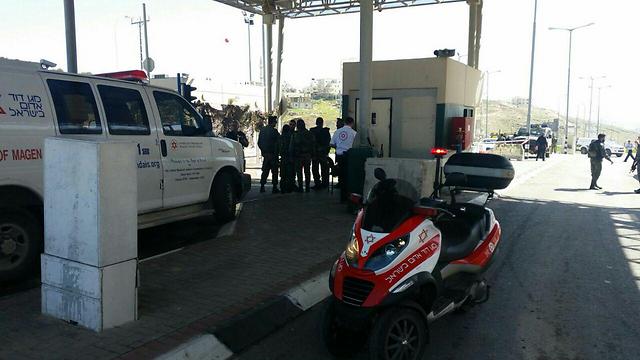
Court orders state to compensate Palestinian family
Nazareth Magistrate's Court rules against state and orders it to pay compensation to family whose son was killed by IDF fire at a checkpoint near Nablus in 2004; an arbitration hearing will determine the amount owed to the family.
The incident occurred when a taxi driver arrived at the Ein Bidan checkpoint to pick up passengers. At that time, the checkpoint was not allowing cars to pass through it. So the driver exited his taxi and began looking for his passengers. When found he found them, they walked back together to his taxi, and then the driver was shot dead.
The state claimed that on the same day of the incident, an IDF soldiers had identified the driver and another person as suspects and had been pursuing them. The state added that the soldiers opened fire at the suspect only after the driver pointed a weapon at them, causing them to believe that their lives were in imminent danger.
The State claimed that it was not liable to pay damages both because the soldiers' actions were lawful and because the incident was a part of an ongoing military operation.
The vice president of the Nazareth Magistrate's Court, Judge Yousif Sohil, ruled that the case's evidence leaves no doubt of the state's responsibility for paying compensation.
The judge found inherent contradictions between the testimonies provided by the two soldiers involved in the shooting. In particular, he found the testimony of the soldier, who opened fire, patently unreliable. For example, while the soldier who opened fire claimed that he genuinely feared for his life, his fellow soldier testified that he had aborted the arrest operation and returned to the checkpoint. Thus, the judge determined that the testimony of the soldier who opened fire was at odds with his fellow soldier, who did not fear for his life or say that the driver pointed his weapon at him and his compatriot.
The judge also wondered why the state claimed that the passenger the driver picked up was a dangerous suspect, as the soldiers did not pursue him when he left the scene.
The judge also stated that the state refrained from presenting evidence that it should have in its possession. Specifically, the state relied solely on the testimony of the soldiers involved in the incident and did not take the testimony of other soldiers, who were present at the checkpoint. It also did not present reports or a recording from the scene of the incident and did not reveal if an investigation into the incident took place.
The judge added that the emergency room report indicates that the bullet wound was in the back, strengthening the evidence against the state
It was determined that there was no justification for the shooting the driver nor was a warning regarding an unusual security situation issued. It was also ruled that the driver was not a terrorist or a wanted individual and the claim that he was carrying a weapon was not sufficiently proven.
The judge also ruled that the soldiers did not act in accordance with the established rules of engagement. He further concluded that the soldier fired at the citizen without an order from his commander, leading to tragic results.
Therefore, the judge determined that the state must compensate the prosecution, which is being set in an arbitration hearing. The state also must pay NIS 19,000 for the family's legal expenses.












